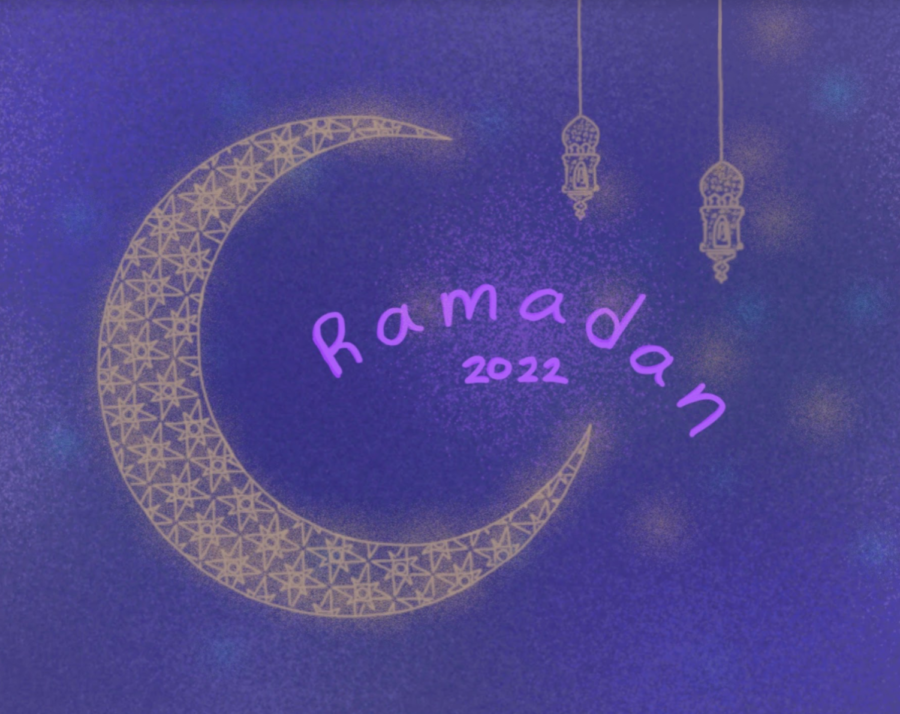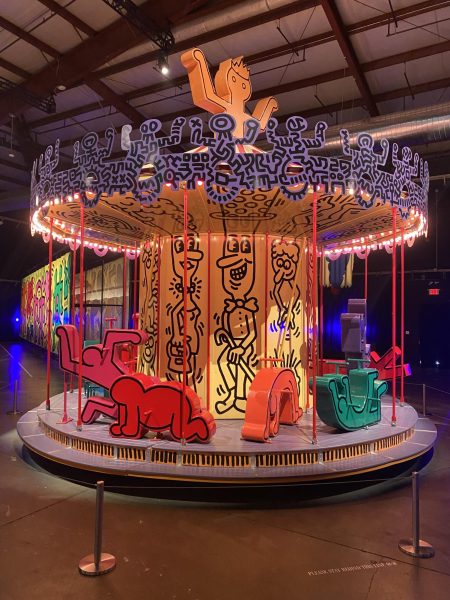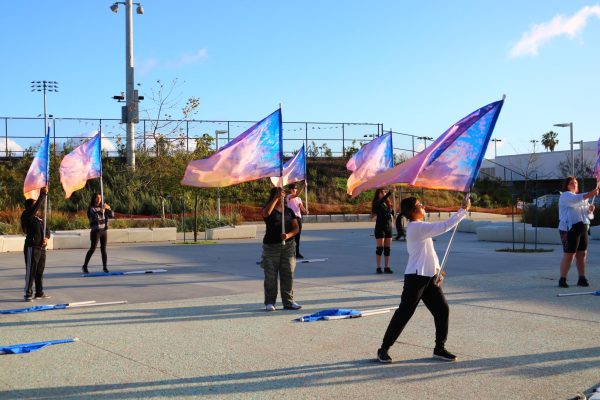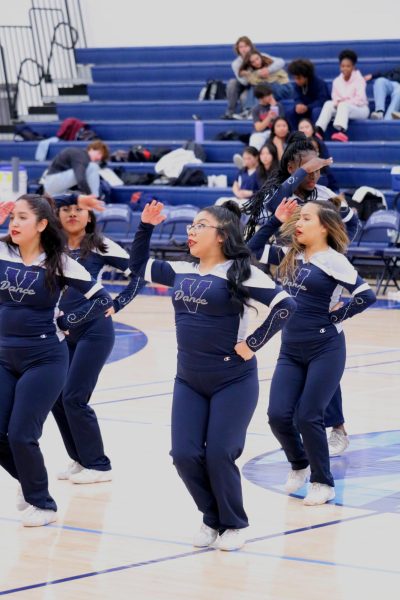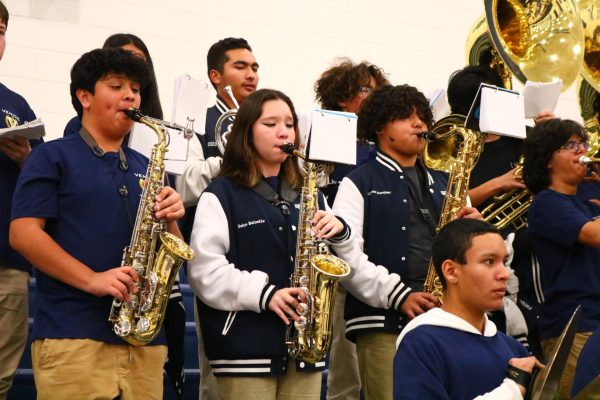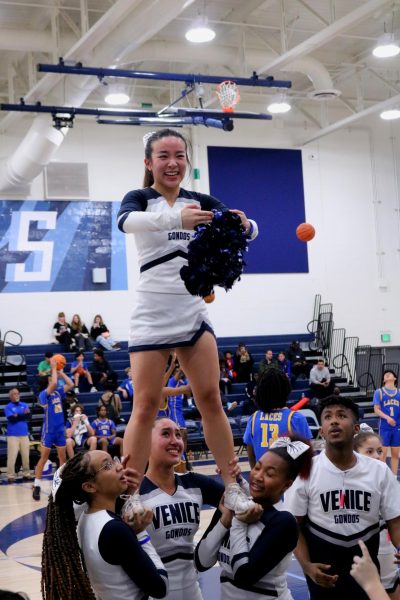Venice Students and Staff Celebrate Ramadan
April 26, 2022
Junior Sheida Mokallaei has spent the last few weeks fasting for Ramadan.
She hasn’t been allowed to eat after sunrise and before sunset, and her fondest memories of the time ironically come from food.
“When you’re setting up the dinner table to break your fast, it gives such an amazing feeling to start seeing everyone eat after almost 12 hours of not doing so,” she said.
Mokallaei began to fast at age fourteen and has been diligent in honoring the lessons that Ramadan teaches to all participants.
“This practice makes you appreciate what you have that so many people would wish to experience for a day,” Mokallaei said.
Ramazan, Ramzan, Ramadhan, or Ramathan, most commonly known as Ramadan in America, is the ninth month of the Islamic calendar, which is based on the lunar calendar.
Unlike the Gregorian calendar, the lunar calendar relies on the phases of the moon, ultimately leading to shifts on holidays.
This year, Ramadan will approximately last until May 2.
It is a time for fasting, prayer, reflection, and community for Muslims worldwide, and to celebrate the ending of Ramadan, there is a two to three day holiday called Eid al-Fitr.
Even if it merely seems like people are just sharing a religious routine until a gallant culmination, the fasting counts for the empathy Islam brings to people, according to world language teacher Amira Kerkache.
“Fasting is actually one of the pillars of Islam, an obligation we have to follow through with every year,” Kerkache said.
“It has a deep spiritual meaning behind it, which is to experience hunger, the lack of access to food that others, unfortunately, may feel every day.”
In addition to fasting, many lend a helping hand to spread charity, giving to those in need.
“A lot of Islamic centers and mosques actively take part in events and activities, such as gifting basic necessities of food and clothing to the homeless or donating school supplies to schools,” Kerkache said.
Although few are not encouraged to fast, such as the elderly, pregnant folk, and young children, Kerkache has been practicing since early childhood.
“We as kids are exposed to the tradition because it is, of course, a religious practice, but some of us do mimic our parents, our older siblings and cousins,” Kerkache said.
“I was eight years old when I started to fast because I saw my older cousins do it.”
Kerkache was born and raised in Algeria, North Africa. However, the practice of Ramadan doesn’t have much of a difference in America, she said.
“We still have to be active at work and go to school, even if we are fasting because society must work.”
But after a long day, Iftar, which is a breaking of fast, is traditionally enjoyed alongside family and friends until the day starts bright and early again.
“There is nothing quite like the feeling of sitting down for a delicious meal at the end with your community,” Kerkache said.
“And if someone didn’t prepare anything to eat, you are welcomed by those who are willing to share, so no one is left behind.”
Social studies teacher Ahsan Minhas too believes that this appreciation is brought to the people during Ramadan and that many think of fasting as a reward.
“It’s not supposed to be a punishment,” Minhas said.
“It’s self-control, a choice to make and love, and for a lot of people that is a straightforward part of the Islamic faith because it shows that we should try to build a society in which hunger is not an issue.”
Although Minhas makes every effort to fast, he still remembers his childhood in Pakistan, where it was simpler to fast during this time of year.
“I was much better at fasting growing up there, but I do try to keep the very important fast, such as the first Friday of Ramazan,” he said.
“The reason why it’s much easier to fast in Pakistan is because, one, everyone is doing it, and two, people are allowed to rest or get off early from work.”
Even though people must get to their jobs and go to school, it is difficult to participate in the events Islam has to offer when some are not fortunate enough to take a break, Minhas said.
“If I want to celebrate Eid al-Fitr, I have to take personal time off, which is a little disappointing, so if our district could accommodate more people’s religious beliefs, that’d be beneficial to us.”
But aside from the predicaments, realizing that one is able to find connections to others is helpful when getting through the lack of solidarity.
“For me, religion is just one of many aspects of my identity, but it’s always nice when I’m around in L.A. and I can to meet other Muslim people and exchange greetings with people who remind me of home,” Minhas said.
Knowing that the world is capable of shining a spotlight on the experiences of Muslims also reassures those who may feel underrepresented, according to Minhas.
“It’s good for Venice and everyone, really, to raise awareness however they can,” he said.
“By doing so, it helps allow students, staff, even people outside of the school community to support people who are actually fasting and observing Ramadan because I know people truly appreciate when others are mindful and respect their faith.”

